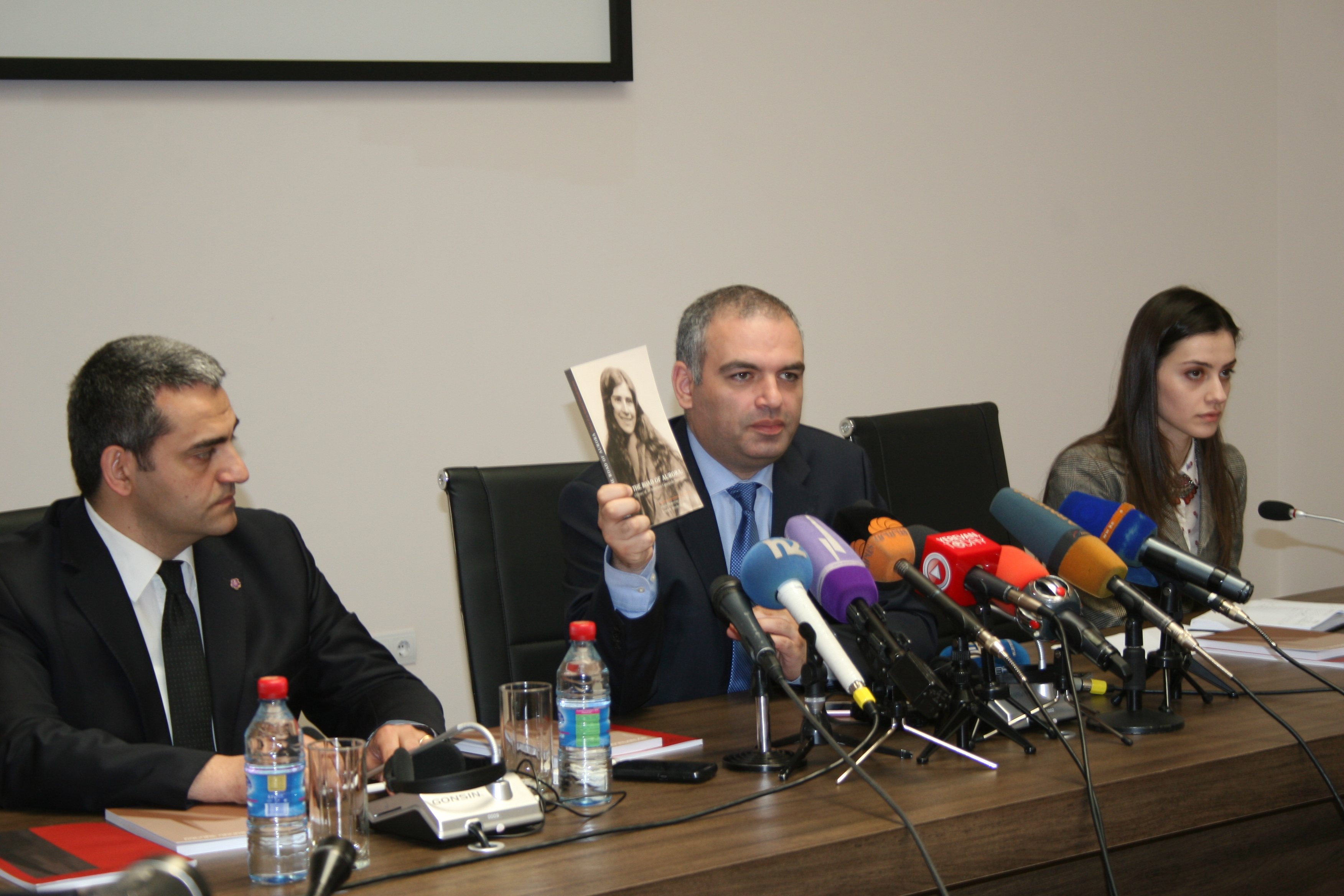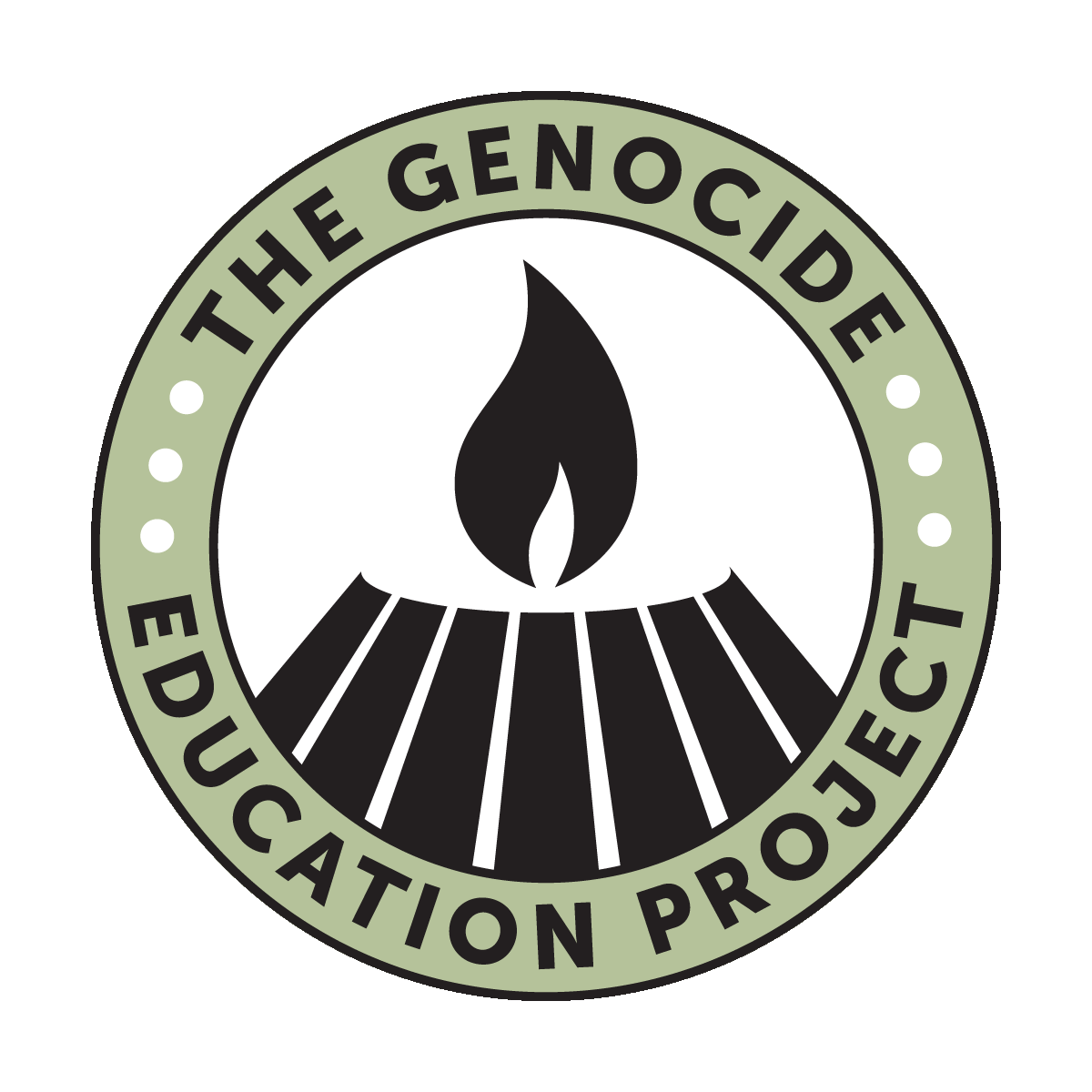22.04.2016

Today on April 22, the press-release of Armenian Genocide Museum-Institute took place. The past year activities of the museum were summed up and new publications were presented. AGMI Director Hayk Demoyan presented the already completed and ongoing projects. This year exhibitions on the Armenian Genocide will be open in Riga and Paris. After the third Armenian Genocide Museum and Beirut exhibition there will be a permanent exhibition also in Riga.
AGMI Director referred to the publication projects, especially, stressed the importance of preparing the Encyclopedia of Armenian Genocide which is expected to be published within this year. Demoyan presented to the journalists the new book “The Road of Aurora, Odyssey of Armenian Genocide Survivor” which just came out of the publishing house. The book is in English and the co-authors are Hayk Demoyan and Lusine Abrahamyan. The book tells the hard and extraordinary journey of Aurora Martiganian. AGMI Directord told the story of finding the archive of brave Armenian survivor, her personal items, collecting them and making it a topic scientific of study.
AGMI Deputy Director Suren Manukyan presented the two new publications of International Journals for Genocide Studies, where articles of Armenian and foreign scientists are presented. Manukyan stressed the importance of being active in the scientific field especially abroad.
At the end of the meeting a conceptual paper was presented by Armenian Genocide Museum-Institute on the urgency of to prevent genocidal acts of Azerbaijan.
On the Urgent Issue of Preventing Azeri Genocidal Acts
After the Convention on the Prevention and Punishment of the Crime of Genocide was adopted by the United Nations in 1948, many cases of the crime of genocide has occurred in different parts of the world. As a result, millions of people were cruelly murdered and deported from their lands. Unfortunately, until now there have been only some cases of individual criminal responsibility for the Crime of Genocide. Meanwhile, another very important provision of this Convention - prevention of the crime of genocide - has no practical results. So, nowadays the humanity faces with the issue of overcoming the consequences of genocide.
Started in the first days of April 2016 the Azerbaijani large-scale military aggression against Nagorno-Karabakh was unprecedented since 1994 ceasefire. This act of aggression proves the intention of the Azeri government to solve the Nagorno-Karabakh issue militarily.
In violation of international agreements the Azerbaijani military forces have shelled the civilians using multiple launch rocket systems and artillery during military operations. The Azeri special detachments penetrated into the Armenian villages and brutally killed elderly civilians, while captive Armenian soldiers were tortured and humiliated. Evidences are being collected in this connection.
During the last 25 years the authorities of Soviet Azerbaijan and later the Republic of Azerbaijan didn’t hide their genocidal intentions against the civilians of Nagorno-Karabakh.
Among those acts were:
• Massacres of the Armenian population and seizure of their property in the cities of Azerbaijan including the capital Baku during 1988-1990. Perpetrators of these crimes haven’t been prosecuted yet.
• Implementation of “Koltso” (ring) operation by the soviet troops and Azerbaijani Special Purpose Mobility Units in many Armenian villages in 1991, as a result of which the Armenian population was exiled, and thousands of people became refugees.
• Shelling of Nagorno-Karabakh peaceful residencies, also by using air force with cluster bombs.
• Presidents of Azerbaijan repeatedly use aggressive military statements in their official rhetoric, not hiding their intentions to exile the Armenian population from their settlements and occupy the territory of Nagorno-Karabakh. Such statements obviously refer to the plan and intention to commit genocide, the prevention of which should be an urgent issue for different international instances.
Increasing militarization of Azerbaijan and acquisition of modern weapon systems is another very important ponderous testimony on behalf of the previous point. Acquisition of offensive weapons from Russia, Turkey, Israel, and other sources asserts the plan of Baku to solve the problem militarily.
New wild-scale military actions by Azerbaijan contain a risk of new genocide, the prevention of which has an urgency to secure the local population from a new humanitarian catastrophe.
Taking into consideration the danger and consequences of this open genocidal plan, at this stage the Armenian Army has assumed the responsibility to prevent genocide and restrain Azeri military and aggressive policy.
It is necessary for the United Nations to establish a working group to prevent the possible acts of genocide by Azerbaijan and develop a mandatory action plan to reduce the possibility of genocidal acts by the Azeri government.





